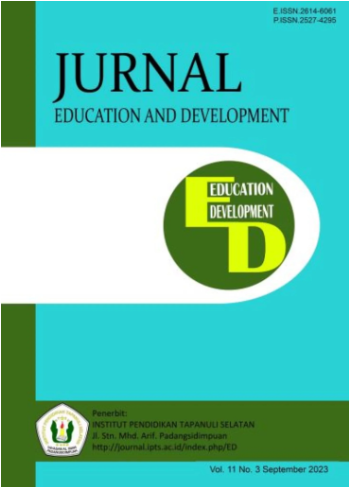EXPLORING DIGITAL LITERACY AMONG HIGH SCHOOL STUDENTS: THE ROLE OF ENVIRONMENT ASSISTANCE
Main Article Content
Abstract
Digital literacy skills in children are a serious topic with significant impact, as children are the future of a nation. In many aspects of life, such as at home, in culture, and across geographical regions worldwide, millions of children are currently using communication and information technology as part of their daily lives. To guide policies and practices, a strong foundation is needed, and continuous studies on the impact of digital technology on children's lives are essential. This research aims to examine the digital literacy competence among children and the role of parents and schools in guiding children through digital literacy. The methodology used in this study is qualitative descriptive. The findings indicate that the digital literacy competence possessed by students can have negative effects on their lives if not supported by a conducive environment that fosters skill improvement. Limiting the ownership of social media accounts and personal mobile phones can help reduce the negative effects of the internet on children. Schools play a role in enhancing students' digital skills, but there are still gaps in addressing digital ethics, digital safety, and digital cultures. Experiencing cybercrime at a young age can influence the mental and social development of children.
Article Details

This work is licensed under a Creative Commons Attribution-NonCommercial-ShareAlike 4.0 International License.
References
Eshet-Alkalai, Y. (2004). Digital Literacy: A Conceptual Framework for Survival Skills in the Digital Era. https://www.researchgate.net/publication/250721430
Gilster, P. (2017). Digital Literacy. Wiley.
Gioia, R. Di. (2018). Young children (0-8) and digital technology, a qualitative study across Europe. https://doi.org/10.2760/294383
KOMINFO. (2022). Status Literasi Digital di Indonesia 2022. https://aptika.kominfo.go.id/wp-content/uploads/2023/02/Report_Nasional_2022_FA_3101.pdf
Livingstone, S., Carr, J., & Byrne, J. (2016). One in Three: Internet Governance and Children’s Rights. www.unicef-irc.org
Moleong, lexy J. (2014). Metode penelitian Kualitatif. Remaja Rosdakarya.
Pacheco, E. M. neil. (2020). Evidence from Ngā taiohi matihiko o Aotearoa-New Zealand Kids Online. https://www.netsafe.org.nz/childrens-online-risks-safety
Patton, M. Q. (2015). Qualitative Research & Evaluation Methods Integrating Theory and Practice. SAGE Publication.
Reddy, P., Sharma, B., & Chaudhary, K. (2020). Digital literacy: A review of literature. In International Journal of Technoethics (Vol. 11, Issue 2, pp. 65–94). IGI Global. https://doi.org/10.4018/IJT.20200701.oa1
Rudkin, A., Beeban Kidron, B., & Angharad Rudkin, R. (2017). Digital Childhood. Addressing childhood development milestones in the digital environment Digital Childhood Addressing Childhood Development Milestones in the Digital Environment Age-specific recommendations. https://doi.org/10.13140/RG.2.2.23405.08167
Syaripudin, A. A. D. N. D. W. B. I. M. M. (n.d.). Seri Buku Literasi Digital - Kerangka Literasi Digital Indonesia. Retrieved August 21, 2023, from https://pustaka-digital.kemdikbud.go.id/index.php?p=show_detail&id=2547
unicef. (2021). Final Report SITUATIONAL ANALYSIS ON DIGITAL LEARNING LANDSCAPE IN INDONESIA.

